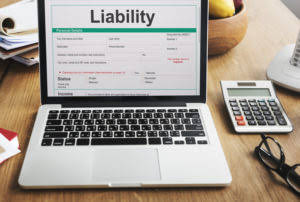
Smaller firms that typically audit smaller governmental and other entities subject to GAGAS are bound to be most impacted by clarifications in the 2018 Yellow Book. These firms may be unable to assign separate personnel or other effective safeguards when providing audit and preparation of accounting records. CPAs can help business owners evaluate the potential tax effects of business decisions by applying their knowledge of the tax code to different scenarios (including how to maximize deductions or take advantage of tax credits to reduce taxes due). They can also research specific solutions and make recommendations on solving tax problems a business is facing.
While a bookkeeper maintains financial records, CPAs analyze the records to provide suggestions and assist in business decisions. The issuance of a new standard in October 2014 has resulted in questions to the AICPA Center for Plain English Accounting (CPEA) regarding whether an accountant who performs bookkeeping services for clients is engaged to prepare financial statements. In that case, the firm may need to relinquish or scale back the scope of its nonaudit services if it wishes to continue performing audit services for the client. Or the firm may resign from the audit engagement and perform only the preparation of accounting records and financial statement services. Independence would be impaired if the firm performed both the audit and nonaudit services described above without appropriate safeguards.
Reminders regarding documentation unchanged from the 2011 Yellow Book
Speaking of CPAs, you may have seen this term used interchangeably with accountant. You may have followed single-entry bookkeeping (where each transaction is recorded in one account) when you first started out. But you’ll probably need to switch to double-entry bookkeeping (where each transaction cpa bookkeeping is recorded as credit to one account and debit to the other) as your company grows. Bookkeeping involves a lot of data entry, and you need to ensure the information is accurate. A bookkeeper will also do the first check on your general ledger to ensure your accounts are balanced.
For pricing, we considered whether a service offers a free trial or a free version of its software as well as the affordability of its lowest and highest price tiers. Those that had pricing that we considered to be in the affordable or moderate range fared better in our rankings while companies that offer upfront pricing received higher ratings than those that did not disclose it immediately. You will likely want to establish a business banking account and credit card. This can help you keep your own business expenses organized and separate. If you plan to hire employees, such as an administrative assistant, you may also want to seek a small business loan. If you seek funding from a bank or investor, your business plan will be especially important because it is how potential lenders and investors will understand your business.
Best for Hiring Certified Bookkeepers
You shouldn’t get a CPA license if you want to start your own accounting firm. A CPA has the ability to do your bookkeeping quickly, but their availability will hurt the overall turnaround time. You may have noticed that CPAs tend to be the busiest in April and October. They won’t have time to clean up your books during those busy periods. And even if they can make time, they will have far less time to communicate with you then. Your best bet as far as attitude and knowledge goes will be a niche bookkeeper with industry specific knowledge and experience.

They can also give you advice to help minimize your tax burden throughout the year, which helps ensure there won’t be an audit or any questions from the state or local authorities. There are bills to pay, accounts receivable to collect, and quarterly taxes to estimate. If you’re a business owner who just wants to kill something and drag it home—in other words, grow your business—all that stuff can sometimes just get in the way.

